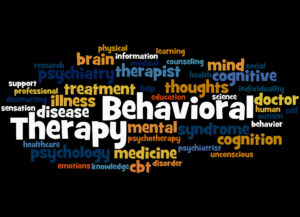Contents
- 1 Child Psychologist Near Me
- 2 Who Is A Child Psychologist?
- 3 Types Of Therapy Offered By Child Psychologists
- 4 Things To Consider Before Consulting A Therapist
- 5 Select “Best Child Psychologist Near Me”
- 6 Why Is It Important To Visit A Child Psychologist?
- 7 Questions To Ask Your Child About Therapy?
- 8 How To Help Your Child Other Than Therapy?
- 9 Conclusion
Child Psychologist Near Me

If your child is having trouble in school, making friends, or behaving properly at home, you may need help from a child psychologist. A child psychiatrist is specially trained in the mental health needs of children and adolescents. They may also diagnose ADHD or other conditions that affect children.
A child psychologist will focus on the emotional well-being of your child including their feelings, thoughts, and behaviors.
Child psychologists are qualified to work with kids aged 3 to 18 years old. Child psychologists are often affiliated with hospitals, schools, universities, clinics, or private practices.
If you need help with your child’s behavior or mental health, call the psychologist. He or she can assess your child and recommend a treatment plan to address the problems they are facing.
Who Is A Child Psychologist?

A child psychologist is an expert on childhood development who can help teens and children manage anxiety and depression better. To find one, simply look up “child psychologists near me” or contact your general pediatrician for recommendations. You can also talk to the parents of other kids you know about their experiences with different therapists they’ve seen.
A child psychologist might be able to help your teen or younger kid manage anxiety, stress, or depression. They can also teach them coping skills so they have the ability to manage their emotions in an effective way. Your child may need to work with a therapist if he or she has deep-rooted issues that are causing them distress, behavioral problems at school, or an inability to form close relationships with others.
Child psychologists often use Cognitive Behavioral Therapy (CBT) to help kids learn how their thoughts about an event impact their feelings and behaviors. For example, do they feel helpless when things go wrong? Or do they blame themselves for mistakes? CBT teaches children strategies to stop negative thoughts in their tracks. A child psychologist near me may also use family therapy to help your children manage their behavior and emotions better.
If you think it is time for your child to talk with a therapist, there are questions you can ask yourself before deciding whether or not you want to visit a therapist near me with them (e.g., What is my child struggling with? Does he or she need to learn new skills?) If you’re curious about what they can offer families like yours, reach out and ask the therapists near you about their methods and how they might be able to help your child or teen if they went through treatment.
Types Of Therapy Offered By Child Psychologists
There are many types of therapy offered by child psychologists. They are often done in groups, but sometimes they are one-on-one.

- Cognitive Behavioral Therapy (CBT)
- Family therapy
- Play therapy
Is it worth it to take your child to a child psychologist near me or should you just try talking with them about their feelings first?
You may want to consider seeing a therapist near me if:
– Your teen exhibits signs of anxiety and depression such as not wanting to get out of bed, having trouble focusing at school, isolating themselves from friends and family members.
– Your children aren’t developing healthy coping skills that would allow them to manage stress better. Parents often worry that they are doing something wrong because their kids struggle with these issues so much. But the truth is sometimes we need help from someone who specializes in childhood development to guide us through identifying the right approach to helping our kids feel better.
– Your child has a lot of negative thoughts about themselves, others, or an event that they believe without question. Negative thoughts can impact self-esteem and feelings about the world making it hard to have positive relationships with other people. A therapist near me can help your child recognize these thoughts and come up with alternative ways to look at them that allow for more positivity in their life.
Things To Consider Before Consulting A Therapist
Therapy can help improve your child’s life and wellbeing. It is important you select the right type of therapist, so here are some things to consider: Your family situation, How severe your child’s symptoms are, what are your goals for therapy are with these things in mind. It becomes much easier to find the right kind of professional who can support you and help you get better.
Here are some guidelines that may be helpful in selecting the right kind of professional:

- If you and your child both feel comfortable with a male or female therapist, it is okay to choose one based on your preference
- It may also be helpful to consider therapists trained in schools as those professionals tend to have expertise in how kids behave at school
- When looking for a counselor, ask if they work with children and their parents
- You can also ask about what experiences they have had working with people who are experiencing similar issues as you
- Make sure to check if the therapist has insurance and/or is willing to accept your insurance plan
- Consider asking friends and family members where they go for therapy or search online for therapists near you
- You can schedule an appointment with the therapist and see how you feel after speaking with them and asking any questions you may have.
- It is important to ask your therapist about their approach to treatment and make sure it is a good fit for your child’s needs
- Consider the location of the therapist as well, since you will need to be able to travel there on a regular basis
- If all else fails, talk with your primary care physician or pediatrician about finding someone who can help
Select “Best Child Psychologist Near Me”
Often emotions escalate quickly when children experience problems like bullying or substance abuse at school or homesickness during camp and parents might not know where to start looking for appropriate help. First, parents should meet with the school’s guidance counselor to discuss their concerns. They could also speak to a trusted friend or family member about where they go for counseling, or speak to their pediatrician about potential resources.
If you are struggling to choose from the many different types of therapists available, consider asking yourself some questions first:
- What is my kid struggling with?
- Is he/she having trouble at school because of their emotions?
- Do they have friends?
- Are they exhibiting any signs of anxiety or depression?
- Is there an event in their life that is impacting them in a negative way (e.g., divorce, death, bullying)?
- What kind of experience do you and your child need?
- Is insurance coverage an issue?
- Would confidentiality be helpful?
- Would a male or female therapist be better suited for your family?
- Do you want a therapist who specializes in schools and/or one who specializes in families?
- How much can you afford to pay for therapy?
- Do you need transportation assistance since the therapist’s location might be a problem?
When you have an idea of what your family needs, it becomes much easier to find the right kind of professional who can support you and help you get better. Here are some
Guidelines That Are Helpful In Selecting A Professional

- If parents and children feel comfortable with a male or female therapist, there is no need to select someone based on gender
- It may also be helpful to consider therapists trained in schools as those professionals tend to have expertise in how kids behave at school
- Make sure to check if the therapist has insurance and/or is willing to accept your insurance plan
- Consider asking friends and family members where they go for therapy or search online for therapists near you.
- If all else fails, speak with your primary care physician or pediatrician about finding someone who can help
- You can schedule an appointment with the therapist and see how you feel after speaking with them and asking any questions you may have.
- It is important to ask your therapist about their approach to treatment and make sure it is a good fit for your child’s needs
- Consider the location of the therapist as well, since you will need to be able to travel there on a regular basis As long as parents are armed with information before they start looking for anyone to work with their children, the process comes much easier.
Why Is It Important To Visit A Child Psychologist?
Parents play an important role in their child’s development but sometimes children need some extra support on the side of someone who specializes in childhood development. Parents often underestimate how difficult it can be for kids to manage stress and emotions.
It is important for parents to visit a ‘child psychologist near me’ because it shows kids that their feelings and experiences are validated. It lets them know it’s okay to struggle with some of the same things other teens do. But there are ways they can feel better if they work with a professional on managing anxiety, stress, or depression.
Questions To Ask Your Child About Therapy?

Child psychologist near me services: CBT Group Therapy Near Me – Cognitive Behavioral Therapy Near Me for Anxiety, Depression & Trauma through treatment. Types of therapy offered by child psychologists There are many types of therapy offered by child psychologists. They are often done in groups, but sometimes they are one-on-one – Cognitive Behavioral Therapy (CBT)
Family therapy – Play therapy Is it worth it to take your child to a child psychologist near me, or should you just try talking with them about their feelings first? You may want to consider seeing a therapist near me if: – Your teen exhibits signs of anxiety and depression such as not wanting to get out of bed, having trouble focusing at school, isolating themselves from friends and family members.-You aren’t developing healthy coping skills.
How To Help Your Child Other Than Therapy?
Sometimes, there are things that can help your child feel better. If you know what they are, you should do them.

- If your child has friends, spend time with them.
- Figure out if they get anxious or upset about something. Tell them it will be okay and that you’re here for them to talk to if they need it.
- Do things with your child that make him/her happy.
- Read books together about overcoming challenges.
- Spend quality time with the family doing something fun and relaxing. Even if it’s going out to eat or going on a hike together as a family unit.
- Don’t be afraid to talk about problems you have at work, school, or home. Your child wants to help and feels better when they know there is both support from them and from those around them.
If you could not manage to pay attention to your child. It may be time for your child to talk with someone who specializes in childhood development about what’s going on and how they can help. There are no easy answers when it comes to mental health issues. But with the right support from family members and professionals, kids can learn how to manage stress, deal with emotions that feel overwhelming or scary, and enjoy life again.
Conclusion
For more information and Guidance, please contact MantraCare. If you have any queries regarding Online Child Counseling or Teen Counseling experienced therapists at MantraCare can help: Book a trial therapy session


